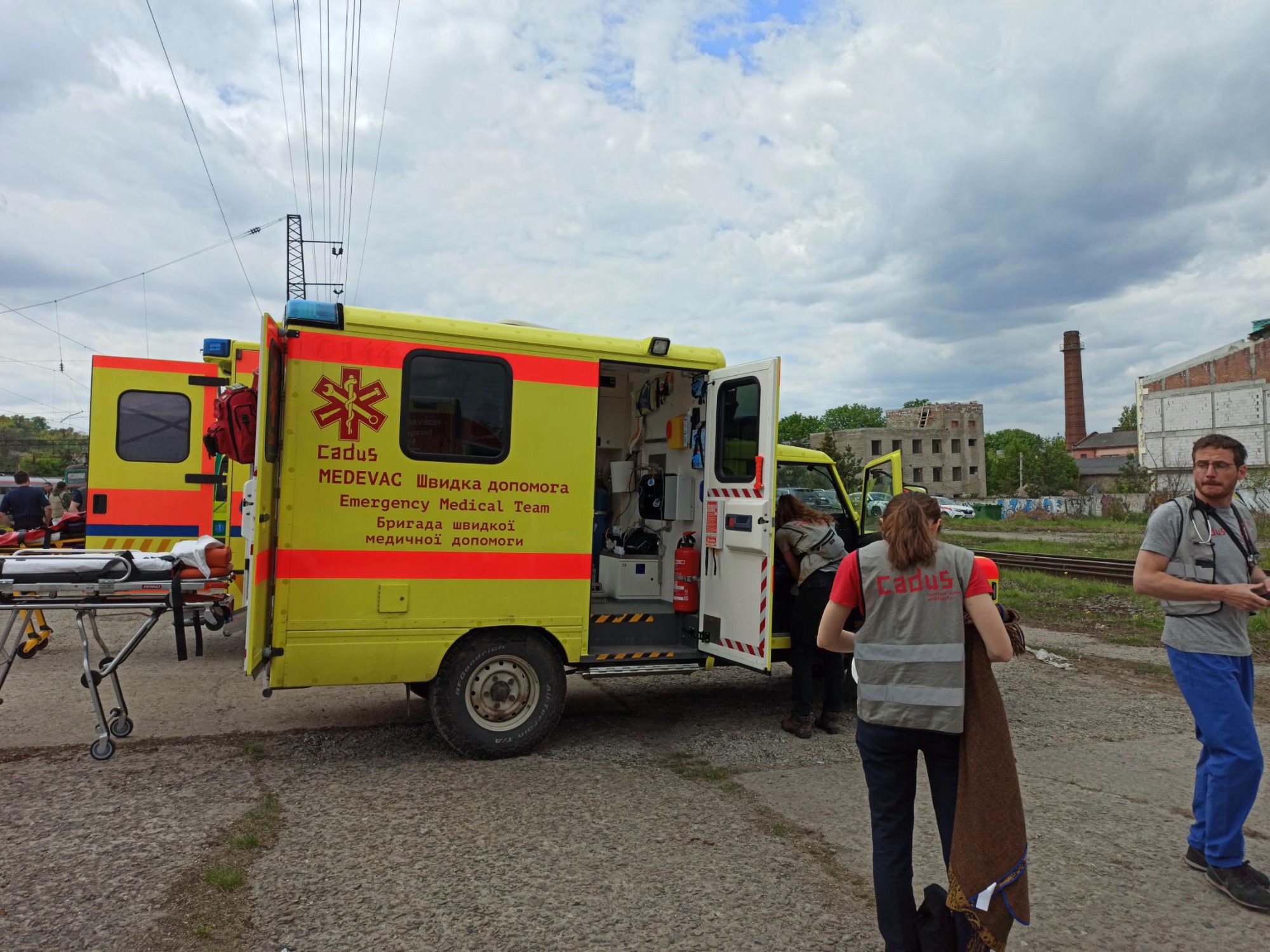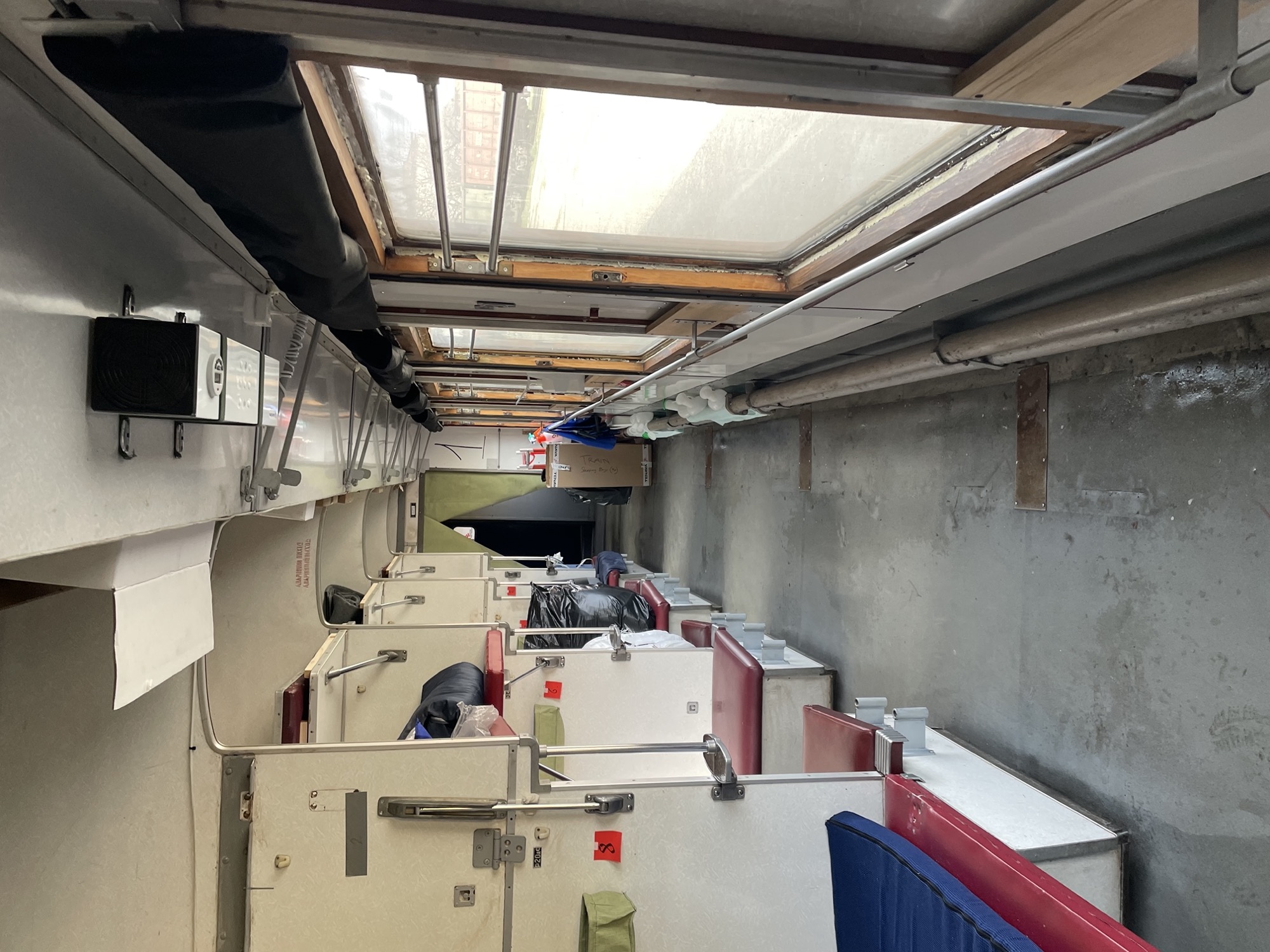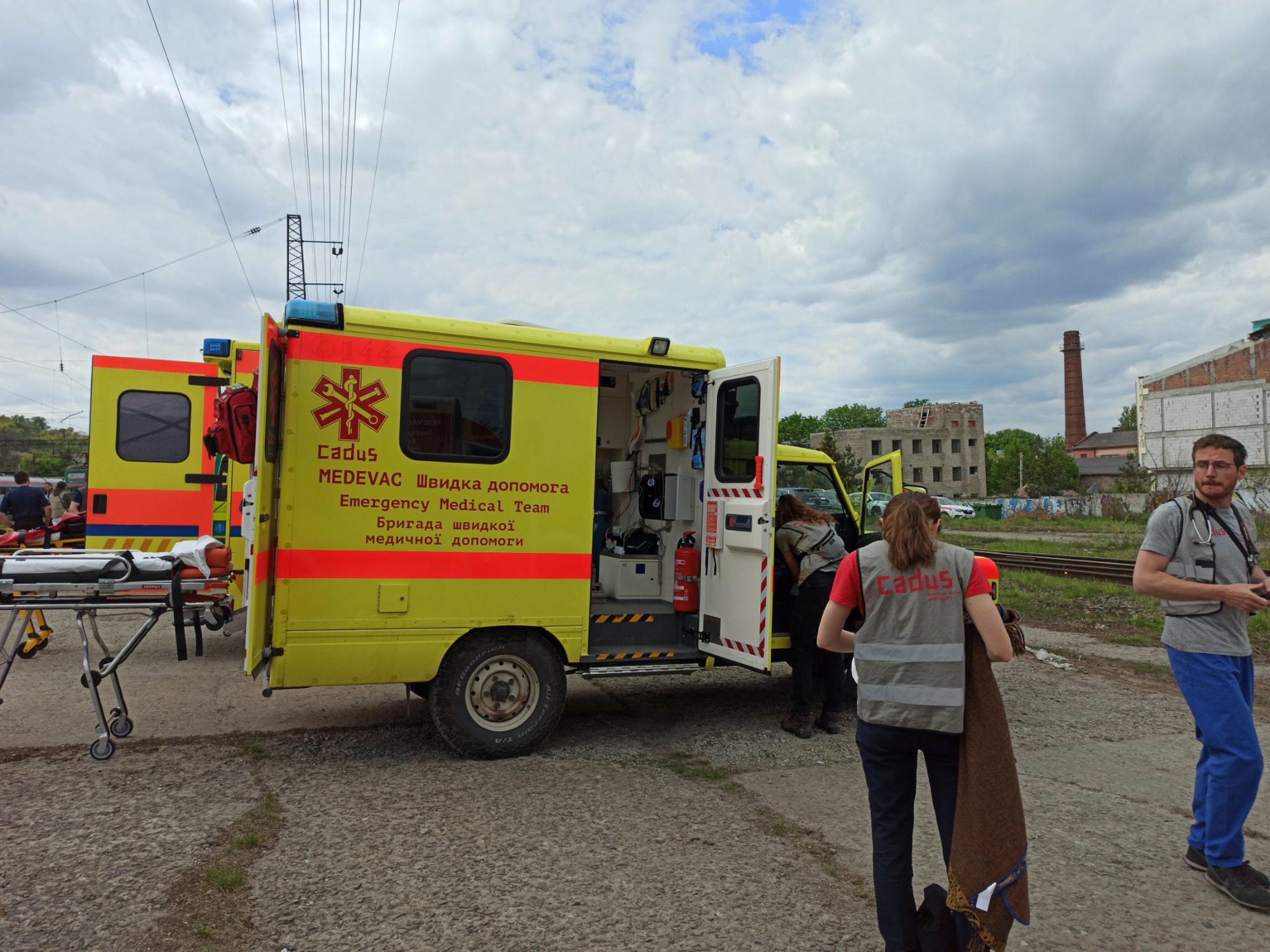
rescue-chain-feature-IMG_0D90B7978D2D-3-ba748f07
Rescue chain
The war in Ukraine continues to claim victims and casualties. Louis, who has been on site as a medic for CADUS, takes us to the train platform in Lviv, where a train with patients from eastern Ukraine is arriving.
“Louis for Mike,” it sounds over the radio.
“Listening,” I give back.
“I’ve got a patient here for you. He suffered injuries from an air strike.
He’s stable, though. I’ll stand outside the door.”
“Yeah, we’re coming.”
We take the stretcher from the ambulance and push it over the gravel of the old platform. Past about 20 other cars, through the crowd of people. It seems chaotic on this day at the old train station in the middle of Lviv. An old train from the east of Ukraine has just arrived. There are many people in it.
People who have left their homes in eastern Ukraine as patients. People who suffer from war injuries and have been transported here in this old train, which has been converted into a kind of clinic.
For almost an hour we have been waiting under tension for their arrival. Until they arrive, it is unclear how many people will be arriving and in what condition they will be in. Our task is to support the Ukrainian rescue service in the care and transport of the more critical patients and to enable their onward transport to the city clinics.
 Rescue teams anxiously await the arrival of the hospital train. ©CADUS
Rescue teams anxiously await the arrival of the hospital train. ©CADUS
On the train car where Mike is standing, the blue paint is peeling, rust is eating away through the doors. It is difficult to understand his voice; all around us, people are walking hurriedly in every direction.
People walk around us in every direction, shouting things to each other over the dust of the station in a language we can’t understand. The engine of the train is humming. Mike tells us that he has spoken to the local coordinator and has seen all the patients. They are all mostly stable and have suffered mainly amputation injuries. As does our patient.
We lift our stretcher across the gap between the train and the platform into the narrow aisle of the train car. Some staff in white MSF (Doctors Without Borders) vests help us turn the corner into the length of the train car with the rigid stretcher. It is dark there. Through the windows, cones of light fall on the beds, which have been lined up lengthwise along the thin aisle. Between mattresses that have already been emptied, people are still lying in some of the beds dressed in bandages and exhaustedly watching the staff hurry around. Our patient is sitting on the edge of the bed. A man in his 40s, his arm is wrapped in a yellowish discolored bandage and rudimentary metal rods protrude between the lines of the bandage, forming a kind of splint. His clothes are worn, his legs scabbed over with minor wounds.
 The train makes it possible to move many patients* at the same time and provide medical care. ©CADUS
The train makes it possible to move many patients* at the same time and provide medical care. ©CADUS
At first, there’s no official welcome for us. Instead, we are handed a list, from which we can only take the medication of the last 20 hours. The medication schedule is complicated, and among a multitude of names we discover Propofol: an anesthetic. Why and how this drug was given in this environment is unclear to us. So we ask for a doctor. From another bed, between stretchers, patients and medical staff, three white vests push their way to us. We are told that our patient had suffered a fracture of the upper arm during an air raid. The propofol had been given to calm him down during the long journey, as he had become agitated under the strain of the trip due to psychological trauma. The doctor is able to answer all our questions. Considering the difficult situation and the exhaustion of the last 20 hours, we thank him impressed and turn to the man, whom we will now drive to the local hospital.
 After the patient is admitted, the ambulance drives to the nearest hospital. ©CADUS
After the patient is admitted, the ambulance drives to the nearest hospital. ©CADUS
Outside on the platform it has already become emptier, the ambulances are all making their way to the hospitals one after the other. It is only a short distance, but still an important part of the rescue chain. The trains are provided by MSF and so the evacuation of endangered people under medical supervision is made possible. Our task for the next few hours is to continue the medical care and to guarantee the handover to the clinics. It is a collaboration of international forces to support the existing structures on the ground, which are doing their best in spite of the enormous challenges. A support of those people on the ground who, against their exhaustion and fears, build and maintain structures in solidarity with their fellow colleagues, in order to hold on to humanism:
People who help people who have been wronged.
Published
Author: Louis
By CadusPR
Stay informed about our missions, events and humanitarian emergency aid topics – with our newsletter!
Newsletter registration
I want to unsubscribe from the newsletter.



